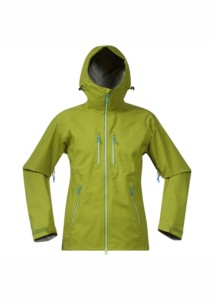100% bio-based and biodegradable microbeads for cosmetics developed by Bio-on
Bio-On S.p.A., an Italian developer of bio-fermentation technologies for biodegradable materials and industrial applications, has developed a new formulation, called Minerv PHA Bio Cosmetics (type C1), that is designed to make 100% bio-based and biodegradable microbeads suitable for the cosmetics industry.
The plastic micro particles (known as microbeads) currently used as thickeners or stabilisers in widely used cosmetic products such as lip gloss, creams, shampoo, shower gel, and toothpaste are one of the many sources of environmental pollution and marine litter. Bio-On has developed microbeads that are bio-based and biodegradable based on their material Minerv PHA Bio Cosmetics. Minerv PHA is biodegradable in water and, therefore, does not enter into sensitive ecosystems or even the food chain. What is more, the biopolymer is capable of binding active molecules and antioxidants in a given cosmetic product, such as Coenzyme Q10, vitamins, proteins, and active substances in general, transporting them naturally to parts of the body where cosmetics products are normally applied. Bio-On’s PHA grades are being produced from agricultural waste including molasses and sugar cane and sugar beet syrups.
Virent introduces bio-polyester shirt made from 100% renewable resources

Shirt made from 100% biobased polyester © Virent, 2016
Virent, Wisconsin-based producer of bio-based chemicals and bio-fuels, recently added textiles to its portfolio, taking the same technology they’ve already successfully demonstrated as a replacement for petroleum in plastic bottles, diesel, gasoline and jet fuel and applying it to fabric production.
Polyester is being used in a multitude of sectors and applications, from sportswear to high-end fashion, to household and automotive uses, and it is one of the most versatile and durable materials that blends well with other fibres. Virent produces a key raw material for polyester, BioFormPX paraxylene, from natural, plant-based resources. This bio-paraxylene is identical to traditional paraxylene with one huge difference: It’s made from a 100% renewable resource, so its production results in much lower emissions of carbon. The end result is a bio-polyester that feels, performs, and wears exactly like traditional polyester because it’s chemically identical, but it achieves a much lower carbon footprint compared to current petroleum-based fabrics.

‘Eidfjord’ weatherproof jacket by outdoor brand Bergans of Norway © Bergans of Norway
Bergans offers weatherproof jacket made from sugar
Norwegian-based outdoor brand Bergans marks a milestone in the outdoor clothing industry with the development of the first plant-based, technical weatherproof jacket – the ‘Eidfjord’.
Made using Ecodear fabric, a 30 percent plant-based polyester face fabric, the Eidfjord has been developed with in collaboration with the Japanese manufacturer ‘Toray’. The lightweight and technical Eidfjord jacket is made with 3-layers of waterproof and breathable properties, using Ecodear fabric on the outer layer. The Ecodear fabric retains its highly technical performance due to the chemical structure of the Ecodear polyester being identical to conventionally produced polyester. Bergans produced this plant-based material by utilising the waste by-product of sugar production to create an environmentally friendly and recyclable product.